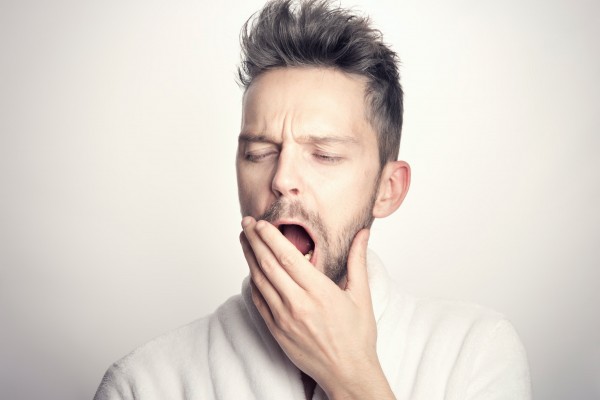Why We Get Sleepy- And How To Hack It!
Posted Oct 11, 2022 at 08:44
Posted Oct 11, 2022 at 08:44

Why We Sleep, by Mathew Walker, is an insightful book and a recommended read. The book emphasizes that sleep is truly the foundation for physical and mental health. Here’s a summary of the second chapter of the book.
(Read to the bottom for tips on how to optimise your caffeine intake)
Two Key Factors Affecting Sleep - The first factor is a signal beamed out from your internal twenty-four-hour clock located deep within your brain. The clock creates a cycling, day-night rhythm that makes you feel tired or alert at regular times of night and day, respectively.
The second factor is a chemical substance that builds up in your brain and creates “sleep pressure”.
The internal twenty-four-hour clock within your brain communicates its daily circadian rhythm signal to every other region of your brain and every organ in your body.Your twenty-four-hour tempo helps to determine when you want to be awake and when you want to be asleep. But it controls other rhythmic patterns, too. These include
The light of the sun methodically resets our inaccurate internal timepiece each and every day, “winding” us back to precisely, not approximately, twenty-four hours.
The brain can also use other external cues, such as food, exercise, temperature fluctuations, and even regularly timed social interaction. All of these events have the ability to reset the biological clock, allowing it to strike a precise twenty-four-hour note.
Wakefulness and sleep are therefore under the control of the circadian rhythm, and not the other way around. Your circadian rhythm will march up and down every twenty-four hours irrespective of whether you have slept or not.
Melatonin - Melatonin is a hormone that your brain produces in response to darkness. It helps with the timing of your circadian rhythms (24-hour internal clock) and with sleep. At dawn, when the day gets dark, melatonin is released. It is the hormone that informs your body it’s time to go to sleep.
Light activates a cell that shuts down the production of melatonin.On short days, the duration of melatonin release will be much longer. On long days, we receive more light so the duration of melatonin release will be shorter. By the end of the night, the absence of circulating melatonin now informs the brain and body that the finish line of sleep has been reached.
Light powerfully inhibits melatonin. Don’t turn on bright lights at night Also, melatonin supplements are not good. They can change the rhythms in the release of melatonin throughout the cycle.
Adenosine
Adenosine appears to subserve a number of diverse roles in normal physiology, which include promoting and/or maintaining sleep, regulating the general state of arousal as well as local neuronal excitability, and coupling cerebral blood flow to energy demand. For every minute you are awake, adenosine is building up in your brain.The longer you are awake, the more adenosine will accumulate. If you increase adenosine in your brain, you increase your desire to sleep. This is known as sleep pressure, and it is the second force that will determine when you feel sleepy, and thus should go to bed.
Caffeine
Caffeine is an adenosine blocker. More specifically, it blocks and inactivates the receptors.This is why caffeine makes you feel more alert and awake, despite the high levels of adenosine that would otherwise seduce you into sleep. Note: The older we are, the longer it takes our brain and body to remove caffeine, and thus the more sensitive we become in later life to caffeine’s sleep-disrupting influence.